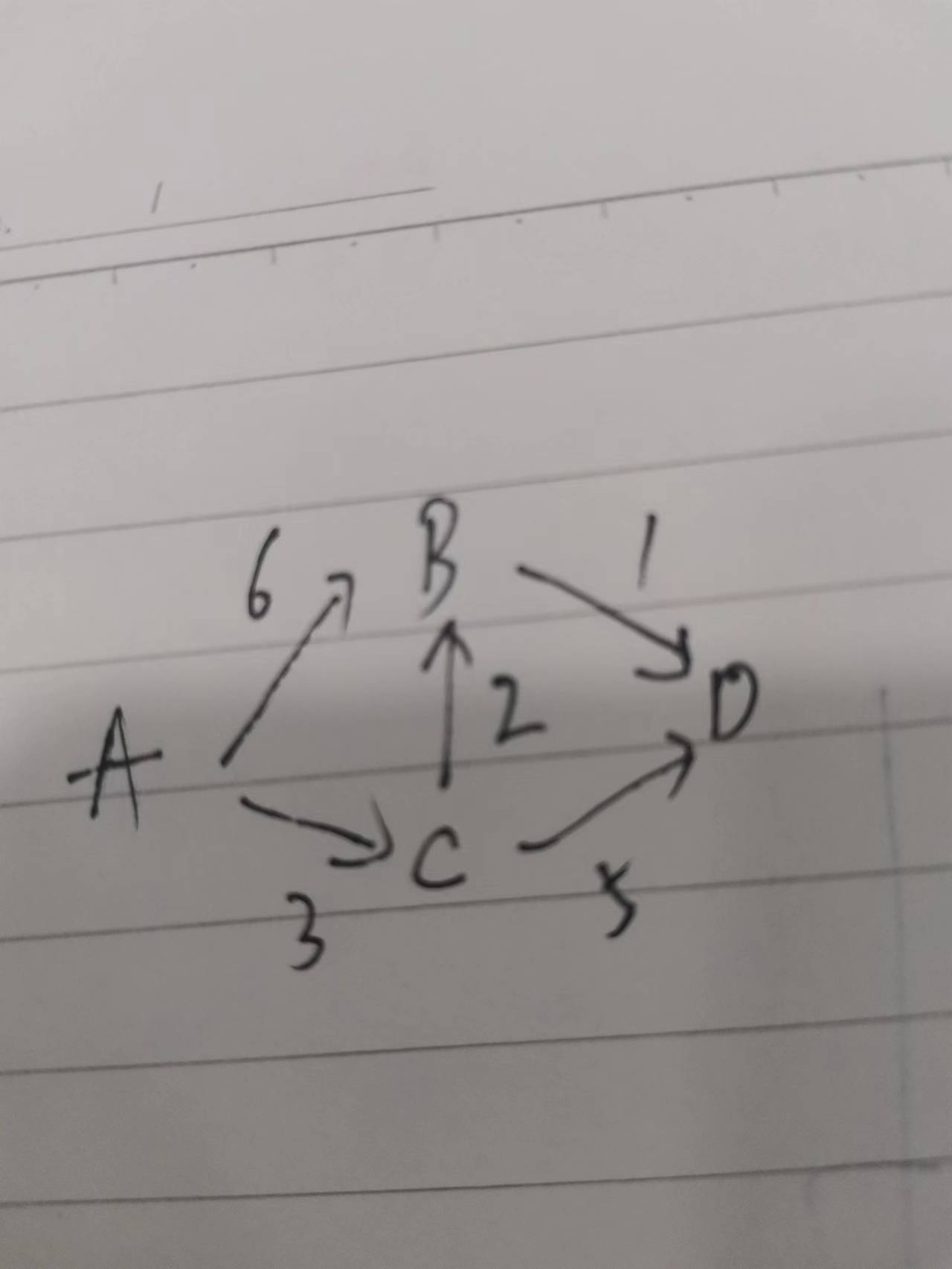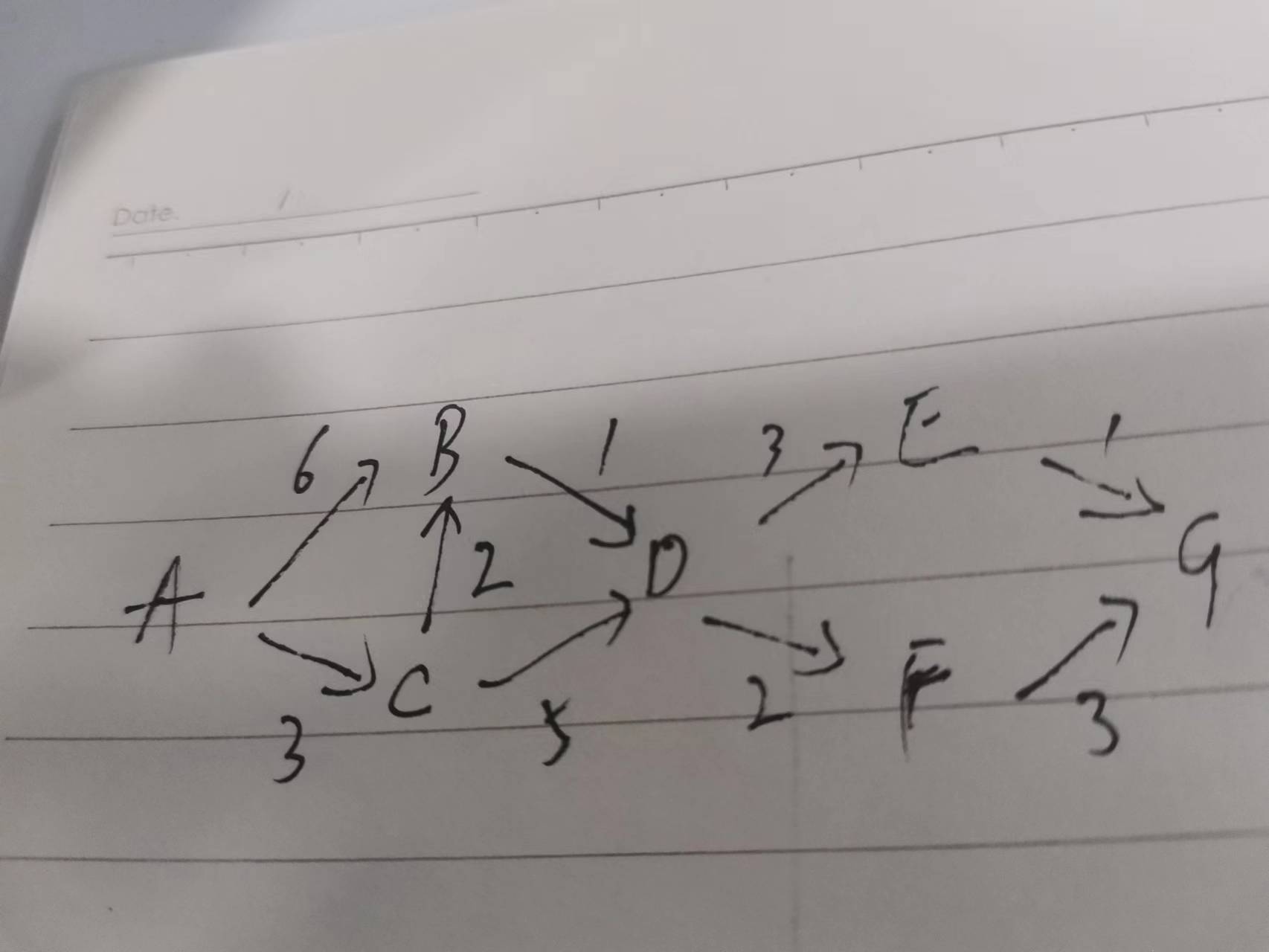1
2
3
4
5
6
7
8
9
10
11
12
13
14
15
16
17
18
19
20
21
22
23
24
25
26
27
28
29
30
31
32
33
34
35
36
37
38
39
40
41
42
43
44
45
46
47
48
49
50
51
52
53
54
55
56
57
58
59
60
61
62
63
64
65
66
67
68
69
70
71
72
73
74
75
76
77
78
79
80
81
82
83
84
85
86
87
88
89
90
91
92
93
94
95
96
97
98
99
100
101
102
103
104
105
106
107
108
109
110
111
112
113
114
115
116
117
118
119
120
121
122
123
124
125
126
127
128
129
130
131
132
133
134
135
136
137
138
139
140
141
142
143
144
145
146
147
148
149
| public class Dijkstra {
static Map<String, Map<String,Integer>> graphMap = new HashMap<>();
static {
Map<String,Integer> aNeighborMap = new HashMap<>();
graphMap.put("A",aNeighborMap);
aNeighborMap.put("B",6);
aNeighborMap.put("C",3);
Map<String,Integer> cNeighborMap = new HashMap<>();
graphMap.put("C",cNeighborMap);
cNeighborMap.put("B",2);
cNeighborMap.put("D",5);
Map<String,Integer> bNeighborMap = new HashMap<>();
graphMap.put("B",bNeighborMap);
bNeighborMap.put("D",1);
Map<String,Integer> dNeighborMap = new HashMap<>();
graphMap.put("D",dNeighborMap);
dNeighborMap.put("E",3);
dNeighborMap.put("F",2);
Map<String,Integer> eNeighborMap = new HashMap<>();
graphMap.put("E",eNeighborMap);
eNeighborMap.put("G",1);
Map<String,Integer> fNeighborMap = new HashMap<>();
graphMap.put("F",fNeighborMap);
fNeighborMap.put("G",3);
}
static Map<String,Integer> costMap = new HashMap<>();
static {
costMap.put("A",0);
costMap.put("D",Integer.MAX_VALUE);
costMap.put("C",Integer.MAX_VALUE);
costMap.put("B",Integer.MAX_VALUE);
costMap.put("E",Integer.MAX_VALUE);
costMap.put("F",Integer.MAX_VALUE);
costMap.put("G",Integer.MAX_VALUE);
}
static Set<String> processed = new HashSet<>();
static {
processed.add("A");
processed.add("G");
}
static Map<String,String> parentMap = new HashMap<>();
static String start = "A";
public static void main(String[] args) {
while (!processed.containsAll(graphMap.keySet())){
dijkstra();
}
System.out.println(costMap.get("G"));
String curNode = "G";
StringBuilder route = new StringBuilder(curNode);
while (!"A".equals(curNode)){
route.insert(0,parentMap.get(curNode)+"->");
curNode = parentMap.get(curNode);
}
System.out.println(route.toString());
}
private static void dijkstra() {
String nextLowerNode = findLowerNode(start);
if("".equals(nextLowerNode)){
return;
}
Integer cost = costMap.get(nextLowerNode);
int newCost = 0;
Map<String, Integer> allNeighbors = graphMap.get(nextLowerNode);
for (Map.Entry<String, Integer> entry : allNeighbors.entrySet()) {
newCost = cost + entry.getValue();
if (costMap.get(entry.getKey()) > newCost) {
costMap.put(entry.getKey(), newCost);
parentMap.put(entry.getKey(), nextLowerNode);
}
}
processed.add(nextLowerNode);
}
public static String findLowerNode(String startNode){
Map<String, Integer> nextNodes = graphMap.get(startNode);
if(processed.containsAll(nextNodes.keySet())){
for(Map.Entry<String,Integer> entry : nextNodes.entrySet()){
return findLowerNode(entry.getKey());
}
}else {
int cost = Integer.MAX_VALUE;
String nextNode = "";
for(Map.Entry<String,Integer> entry : nextNodes.entrySet()){
if(processed.contains(entry.getKey())){
continue;
}
if(entry.getValue() < cost){
cost = entry.getValue();
nextNode = entry.getKey();
}
}
int newCost = costMap.get(startNode)+cost;
if(newCost < costMap.get(nextNode)){
costMap.put(nextNode,newCost);
parentMap.put(nextNode,startNode);
}
return nextNode;
}
return "";
}
}
|


v1.3.10